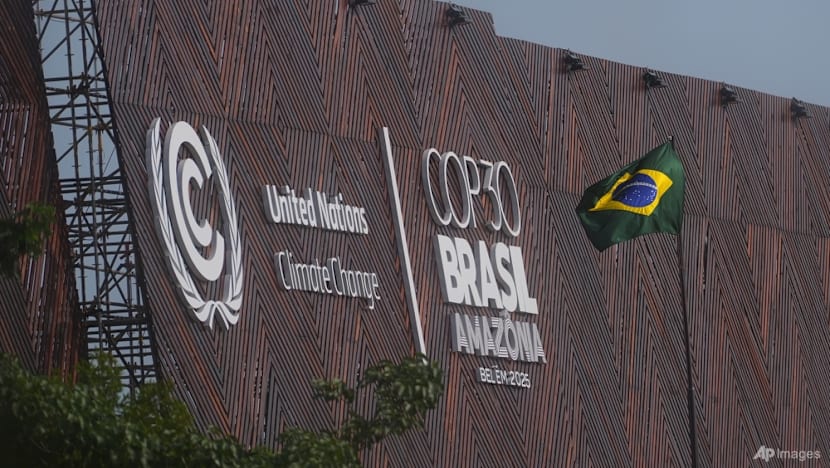Trade tensions overshadow climate goals at COP30 as tariffs, carbon taxes fuel divides

BELEM: Trade tensions have surged to the forefront of COP30, with China, major emerging economies and smaller developing nations warning that tariffs and carbon border taxes risk undermining global climate goals as the UN climate summit enters its decisive phase on Tuesday (Nov 18).
The shift marks a rare elevation of trade into the heart of climate diplomacy. A draft text circulated by Brazil’s COP30 presidency listed trade as one of the top priorities for the summit’s outcome document, signalling a break from previous years where emissions cuts and climate finance dominated negotiations.
Chinese electric vehicles, particularly the BYD Dolphin Mini now ubiquitous on the streets of Belém, have become a symbol of the tensions. China wants wider access for its green technologies, while Western nations have rolled out steep tariffs. The EU now imposes duties of up to 45 per cent on Chinese EVs, and US and Canadian tariffs exceed 100 per cent.
TRADE DISPUTES OVERSHADOW CLIMATE GOALS
Countries across Asia, Africa and Latin America say such measures contradict global decarbonisation efforts. Many rely on affordable Chinese green technology to transition and view Western restrictions as inconsistent with their climate commitments.
“We need to achieve radical decarbonisation within two decades to meet the Paris goals,” Alden Meyer of E3G told AFP. “If trade policies create barriers, that is a legitimate concern.”
The EU’s Carbon Border Adjustment Mechanism (CBAM) remains a major flashpoint. Intended to prevent companies from shifting operations to countries with weaker environmental standards, CBAM covers carbon-intensive imports such as steel and fertiliser.
But major developing economies including India, South Africa and Brazil say it unfairly burdens producers that historically contributed the least to global emissions.
African delegates also warn that CBAM could be only the beginning. The EU’s deforestation-linked commodity rules, temporarily paused, have already stirred fears among exporters of cocoa, coffee and other agricultural goods.
EU DEFENDS CBAM AS ‘CLIMATE POLICY’
EU officials insist CBAM is driven by climate ambition, not protectionism.
“Pricing carbon is essential, and we want as many partners involved as quickly as possible,” EU climate commissioner Wopke Hoekstra said. “We will not accept claims that CBAM is a unilateral trade measure.”
Other Western diplomats say that privately, some governments support CBAM for encouraging decarbonisation.
While Russia has lodged a complaint with the WTO, the trade body’s paralysed dispute system means opponents are looking elsewhere to challenge CBAM. Canada and the UK are pursuing their own border carbon mechanisms, raising the likelihood of overlapping regulatory regimes.
SURFACING TENSIONS, NOT SOLVING THEM
Experts say COP30 will not resolve long-running trade disputes but may force countries to address them more openly.
“Even if trade ends up in the final text, no one expects a magical solution,” said David Waskow of the World Resources Institute. “But surfacing the issues can push governments to recalibrate their positions.”
With climate deadlines looming, negotiators warn that escalating trade friction could derail global cooperation at a moment when rapid emissions cuts are urgently needed.















